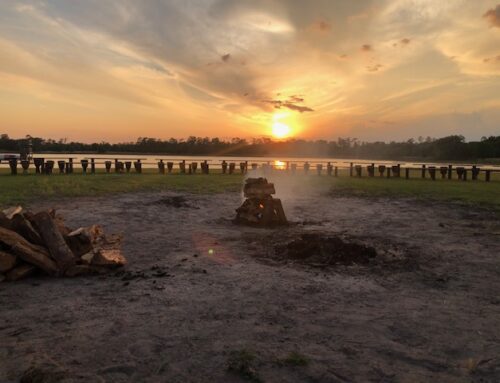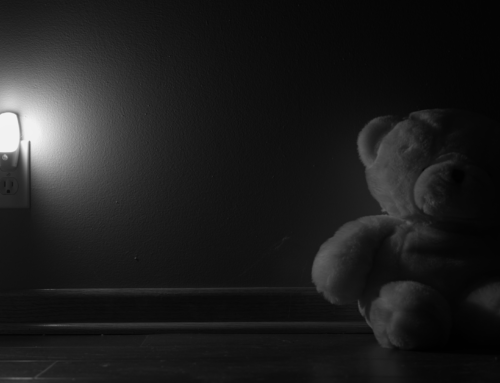***cw: trauma, eating disorders, substance abuse***
Earlier this week my oldest daughter, a psychology major at USF, shared a social media post with me – a square with the word “trauma” on it multiple times with a captioned definition that was unfamiliar and troubling.
She was curious about my thoughts, which sparked my own curiosity about my thoughts, which sparked multiple conversations with multiple kids and even more thoughts.
Apparently trauma is trending.
Here’s why I sometimes wish I had launched this blog anonymously:
When my kids were young, I intended for them to never know certain parts of my story. I wanted keep their view of me sterile and present-day, because I didn’t want them to view me through a certain lens. I didn’t want sympathy, and I didn’t want a “get out of jail free card” for my human or maternal failings – I still don’t.

As they got older and I got healthier, I realized that I could not cultivate the closeness and trust I desired while keeping a huge part of myself from them. I could not keep a secret that impacted my life in a significant way and have the kind of authentic relationship with them that I wanted. I could not ask them to share their struggles, their deepest desires, and their pain while withholding my own. It’s like walking a tightrope while juggling teacups - maintaining healthy parent/child boundaries while not selling them short. I don’t know what I’m doing most of the time, and I admittedly fall on the under-sharing side of the tightrope almost always. As Brené Brown says, “Vulnerability minus boundaries is not vulnerability.” Vulnerability and disclosure are very different.
Kid by kid - conversation by conversation - the topic could not be avoided. Consent was a huge part of our sex talks, therapy was a significant part of my life, and my personal growth was undoubtedly linked to my PTSD recovery. As they approached adulthood, I found myself disclosing as little as possible, while still being honest about my lived experience. This sharing wasn’t an isolated event - more like dropping breadcrumbs as needed so we could all find our way back to ourselves and each other.
Secrets keep you buried, suffocated, drowning. And when you keep them from the people you love the most, they limit the depth of connection.
“As long as you keep secrets and suppress information, you are fundamentally at war with yourself. Hiding your core feelings takes an enormous amount of energy, it saps your motivation to pursue worthwhile goals, and it leaves you feeling bored and shut down. Meanwhile, stress hormones keep flooding your body […] - Bessel van der Kolk
As my friend Cindy pointed out in her post on mental illness found here, I don’t know anyone who wishes to be defined by their pain. I certainly do not want to be defined by mine. I am - we all are - complex and layered. I am the sum of many parts, and my past experiences are a part - not the whole. I’d like to say I give no fucks what anyone thinks of me, but I actually do care - I particularly care about the people who know and love me best.
Here’s what this post is not:
This post is not an attempt to be the gatekeeper of anyone’s pain. Life is fucking hard, with or without trauma. Disappointment, grief, and heartbreak are woven into the human experience. If you are over a certain age, my assumption is that you have experienced significant loss. Suffering is relative, but it is not a contest.
This post is not an attempt to speak for anyone else. I have never lost a child. I’ve never served in the military; and I’ve never been a first responder or healthcare worker. I’ve never been in a serious car crash or suffered a life-threatening illness. I’ve never experienced the pain of being rejected by my family because of my sexual orientation or gender identity. There is much I haven’t endured. I have no formal education on the matter. I only know what I’ve lived and what’s been shared with me in that sacred space of seeing and being seen by those with a shared history.
This post is not an attempt to engage in a debate that is rooted in semantics, technical definitions, or academic study. I do not wish to strip anyone of their humanity in that way - myself included.
Now that I've said more about talking about the thing than I'll say about the actual thing...
The DSM (Diagnostic and Statistical Manual of Mental Disorders) has its issues for sure, but I agree with the DSM-5 definition of trauma:
The DSM-5 definition requires “actual or threatened death, serious injury, or sexual violence” [10] (p. 271). Stressful events not involving an immediate threat to life or physical injury such as psychosocial stressors [4] (e.g., divorce or job loss) are not considered trauma in this definition. (The diagnostic criteria for PTSD can be found here.)
There are however varying perspectives by prominent, well-respected professionals:
“Trauma is anything that is negative and unexpected, and leaves us overwhelmed and unable to cope. When we experience trauma, our brain and nervous system changes how we stop memory. What should otherwise be a clear coherent story about an experience characterized by safety or normalcy, can become a choppy or disorganized narrative. […] While this has been used to discredit survivors, often women, queer, and trans people who’ve lived through sexual abuse, assault, or violence, it is often proof of the trauma itself.” - Dr. Hillary McBride
“Trauma, by definition, is unbearable and intolerable.” - Bessel van der Kolk
“Trauma is anything less than nurturing that changes your vision of yourself and your place in the world.” - Judy Crane
In the same way there is a distinction between being triggered and being emotionally activated, there is a difference between trauma and deep disappointment. I’ve experienced both. But does an experience that *feels* traumatic mean that it is? If divorce, cancelled traveled plans, and job loss are all considered trauma, where does that leave everything else? If everything is trauma, nothing is.
My primary concern with the haphazard use of this word is the loss of language for those of us who depend on it - to connect, to share, to be fully alive. Language is really all we have. There is safety in vagueness. I share parts of my story - cautiously, rarely, and with a great deal of discretion - with the words I say and all the words I don't say. There are words that are too heavy, too scary, too cumbersome to say out loud. So for me to share that “I have a traumatic experience in my past” feels much safer than another, more specific word. And while the actual word-to-be-avoided-at-all-cost might vary from one survivor to the next, the desire to use less threatening language does not. No matter how cute or colorful the background might be, “trauma” is not a word that I like to see plastered on Instagram squares; but it does not evoke the visceral response that other words do. It weighs less, it hits more gently, and the recovery time is significantly quicker.
When I invite someone into the hallowed ground that is this part of my story, I need this language. I needed it when I slowly shared with my kids. I need it now if I want to share - even a little bit - and remain fully present in the conversation. If there’s a benefit in using more specific language, I have not found it - for myself or the person with whom I’m sharing. (I’ve shared my story in detail - using very explicit language - in group therapy...a helpful exercise for me to process and then move through it, but it is not something I wish to do again.) I have the mental and emotional capacity to talk about it, I just haven't (personally) experienced the benefits of doing so casually or without a clear intention. And you definitely won't catch me using quirky catchphrases to mark the passage of time since the traumatic event. (And no, thank you, I don't wish to use phrases like "big T" or "little t" in order to communicate the significance.)
My secondary concern is this: I appreciate the societal shift to de-stigmatize and normalize conversations around mental health and trauma, but I am concerned that the pendulum has swung so far that the end result is the same. Those who desperately need help won’t seek it. As my youngest daughter said during a discussion regarding the romanticization of mental health struggles on TikTok, “If all teenagers are suffering from anxiety and depression, why would any teen seek help for their anxiety and depression? Apparently it’s just…normal.” And I feel the same about trauma recovery. Does our attempt to validate all painful experiences by labeling them trauma actually invalidate the trauma (as defined by the DSM-5) of others?
The original IG post that prompted this conversation referenced the book, The Body Keeps the Score by Bessel van der Kolk - and it is a powerful resource. The author is working to add Developmental Trauma Disorder to the DSM, and I hope that happens. It’s a dense read - proceed with mindful care and self-compassion.
Staying on this topic too long is like getting caught in the undertow - avoiding it altogether is like trying to avoid the waves while swimming in the ocean. I’ve reached the end of myself with this already, even though there’s more I’d like to say. I’d like to talk about how 74% of 293 women attending residential treatment for eating disorders indicated that they had experienced a significant trauma (1), or how people seeking treatment for PTSD are 14 times more likely to also be diagnosed with a substance abuse disorder (2). I’d like to talk about how problematic dissociation is in intimate relationships. Initially I wanted to prove that my definition of trauma is the correct one by quoting experts, statistics, and research studies. My main point now is that your feelings are valid, your experience is yours to process however you see fit, and help is out there if you want it. Wherever your personal suffering falls on the spectrum, you don’t have to carry it alone.
For now, I will greet my youngest good morning, mix up some matcha and oat milk, take my vitamins, drink some water, and start my work day. These activities ground me, and tether me to the reality that I Am Safe. Stay tuned for more lighthearted posts in the near future, such as How I Reconciled My Own Death and Ten Ways Disney Princess Movies and Pornography Set Us All Up for Failure.
p.s. Therapy saved my life. Over and over again. I will openhandedly share the long-term benefits of the psychotherapy modalities I've tried (and some of the short-term struggles) with anyone left wondering if therapy could be helpful; because the coping mechanisms developed to deal with the trauma can be just as impactful as the trauma itself - even more so in my experience. Outside of the context of helping someone navigate the stormy seas of recovery and healing, my hands are significantly less open.




Leave A Comment
You must be logged in to post a comment.